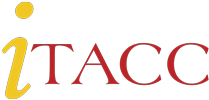Project Name
Supported Decision-making New York
Type of practice
Promising practice (practice is proven to achieve outcomes)
Area of Emphasis
Quality Assurance and training in self-advocacy, leadership, and self-determination
Project/activity years
2021
2020
2019
2018
2017
Population of focus
People with intellectual and developmental disabilities
Families of people with ID/DD
Policymakers
Strategies Used
Outreach
Training
Supporting and Educating Communities
Barrier Elimination, Systems Design, and Redesign
Coalition Development and Citizen Participation (self-advocacy training, educating policymakers, and citizen leadership skills)
Informing Policymakers
Demonstration of New Approaches to Services and Supports
Project Description
Supported Decision-making New York, SDMNY, created a facilitation model as an alternative path to guardianship. The model focuses on empowering the person with IDD, the decision-maker, to create supported decision-making agreements (SDMA) on the life areas they select. These agreements are done with the supporters (friends, family, colleagues, etc), with a facilitator help hone the discussions. Not only has the model been demonstrated to be successful vis a vis the number of SDMAs that have been drafted and signed as a result of pilot participation, the State Legislature recently passed a bill ensuring that third parties cannot discriminate against people with IDD and the decisions they make. The bill also encourages the use of SDMAs.
Impact (or impact-to-date) of the project/activity for people with ID/DD and their families
This project has not only developed a functioning alternative to guardianship for people with IDD and their families, it paves the way for progress in the area of alternatives to guardianship society-wide, especially in regards to the acceptance of personhood and decision-making ability of all members of society.
Stories
Story perspective
Person with ID/DD
Family of a person with ID/DD
What were things like BEFORE you/your family/partner/community participated in the project/activity?
One participant as placed under guardianship when he turned 18. His parents went this route because they were told they had to.. Fortunately, the Court felt that this particular individual may not require guardianship, and stipulated that the family return when he turned 21. Upon return, the Court referred him to the SDMNY program.
What are things like AFTER you/family/partner/community participated in the project/activity?
The person has since completed the program and drafted SDMAs in the life areas where he wants supports. The family will return to court soon, to have his guardianship terminated and his rights restored.
What was most beneficial to you/family/partner/community from participating in this project or practice?
The person’s family fully anticipates that he will “exercise that autonomy, not only to make his own dreams come true…but also to be an advocate for social justice issues…”
The participant felt that SDMNY enabled him to be himself and get his rights back.
The role of the DD Council in achieving positive outcomes through this project.
The New York DD Council knew that a project of this scale and desired impact would be a large undertaking. The Council funded the project for 5 years, and during that time the model was developed and implemented. The bill was introduced in the final year of the project, but was not passed until the following year. Since DDPC funded the project, our State service provider agency has put funding toward continuing the program, ensuring more New Yorkers will have access to facilitation as an alternative to guardianship.
Contact Information
Name: Kimberly Berg
Email: kimberly.berg@ddpc.ny.gov
Phone: (518) 486-7505
Council location: New York
Website: www.ddpc.ny.gov
